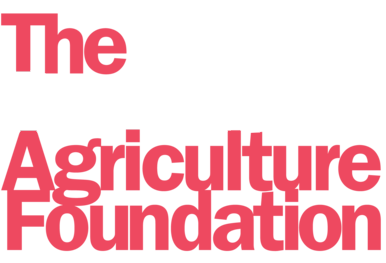Productivity Doesn’t Define Your Worth
November 17, 2020
By Lesley Kelly, Farmer and Co-Founder of the Do More Agriculture Foundation
Although our societal and cultural norms focus on to-do lists and being busy equates to being productive and provides happiness, this assumption can lead to devastating impacts on our mental health and self-worth.
We’ve learned over time that through hard work, our productivity is associated with who we are, a key factor of what drives our success on the farm and even acceptance. As part of running a successful operation, productivity needs to be a priority. But it shouldn’t be the only priority. In fact, if you google “agriculture” and “productivity,” what comes out of the search is economics, growth, technology, sustainability but nothing to the effects of the person driving the productivity – the farmer.
If we want our farms to be at their productive best, farmers also need to be part of the equation and be at their best. Just like for equipment to perform at its best, it needs proper care and regular maintenance. Farmers should be treated no different, if not better than the equipment we operate.
We aren’t meant to always be operating and working, despite being told to “put your head down and work through it,” “hard work always pays off,” and the amount of increased workload farmers have to keep up with today. The issue is that if we rely on hard work and achievements to define our self-worth, we’re at constant risk of something failing and not going as planned. Sometimes despite our best efforts and hard work, there are many factors outside of our control that will determine our paths.
Ultimately, your productivity doesn’t define your worth. Productivity isn’t a tool to prove your self-worth but a tool to help you live a meaningful life (in your own definition of what that is). Here are some strategies to help redefine productivity and self-worth:
1) Scheduling more breaks into the day: In order for us to be at our best, we have to be healthy, which is providing our bodies and our minds the time to rest, recover and recharge from physical daily activities, stressful situations – and possibly both like harvest season. When we rest and recover by taking breaks, this increases our drive, concentration and overall, productivity.
2) Surround yourself with family and friends: Being surrounded by family and friends helps to remind us of who we are, our legacy, and what is most important. Despite knowing there is more to us than what we produce, it can be easy to forget. As a way to connect us with who we are, make a list of your favourite people and how you feel when you are with them. If you review your list, these people have impacted you in one way and you have impacted them in ways that far exceed “doing” but more about “being.” The list focuses on being who they are, who you are and what that means.
3) Doing what feels meaningful: There may be activities that leave you drained, tired and even feeling anxious. Instead of letting these activities take control, replace them with ones that bring you joy or happiness, or don’t replace them but give yourself the gift of time. If these activities include jobs on the farm that need to get done, a possible solution is delegating them to someone else or hiring someone to perform them.
4) Focus on your values: Reminding yourself of your values can help you gain clarity on what’s important to you and help you find motivation. Maybe it’s connecting with a loved one or friend, spending a few minutes on a creative project, or going for a walk in nature. Instead of basing your productivity on how many jobs you tackled that day, try adjusting to include bringing more values-aligned moments in your day.
5) Remember your resilience: As you go about your day-to-day, don’t forget to take time to reflect on how you’ve made it through tough days in your past and have the strength to make it through any that might come in your future. The act of accepting and adapting in itself is important and moments of self-care are just as productive as anything else.
If you are looking for more information on resources and support, visit our list of resources.
The Do More Agriculture Foundation is not intended to be a substitute for professional medical advice, diagnosis, or treatment. If you are in crisis, please visit your local emergency department or call 911 immediately.

